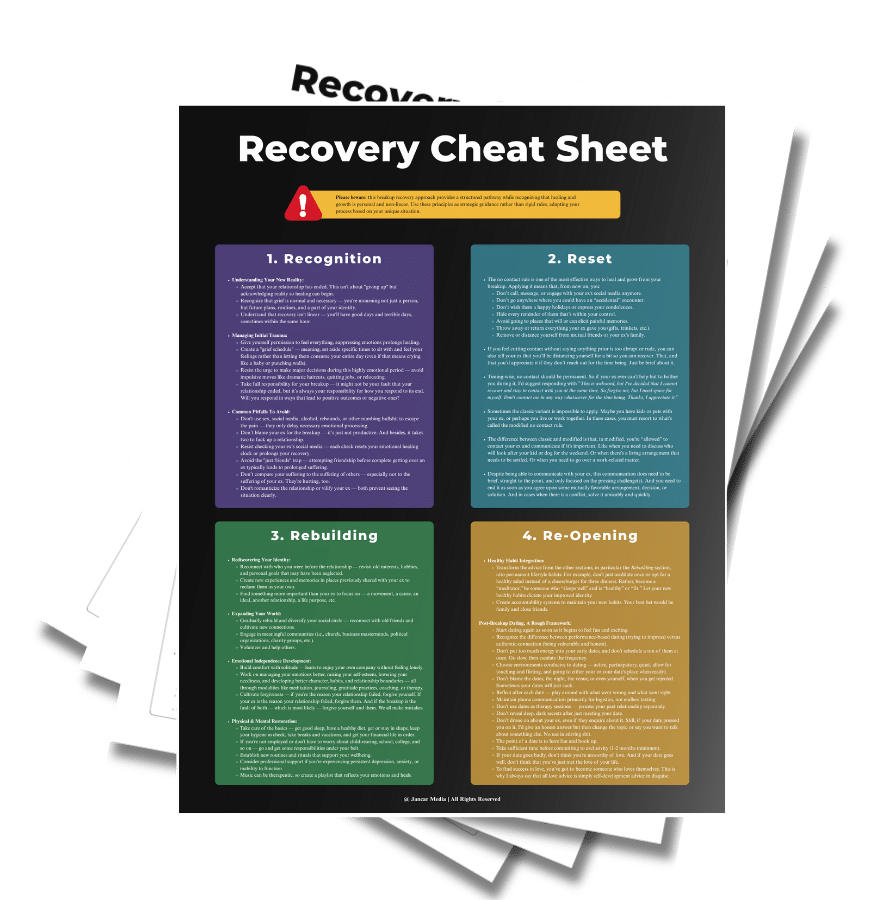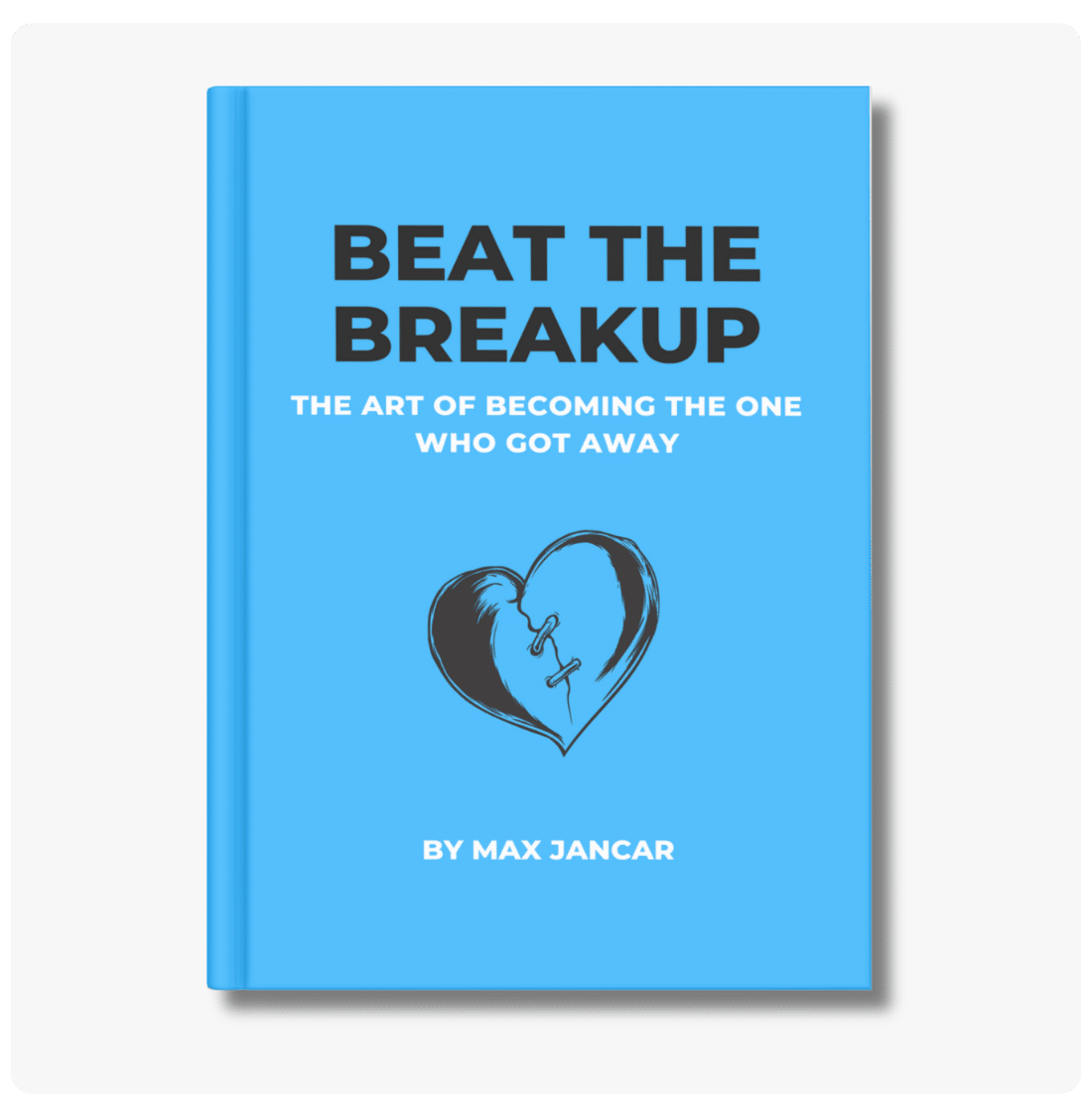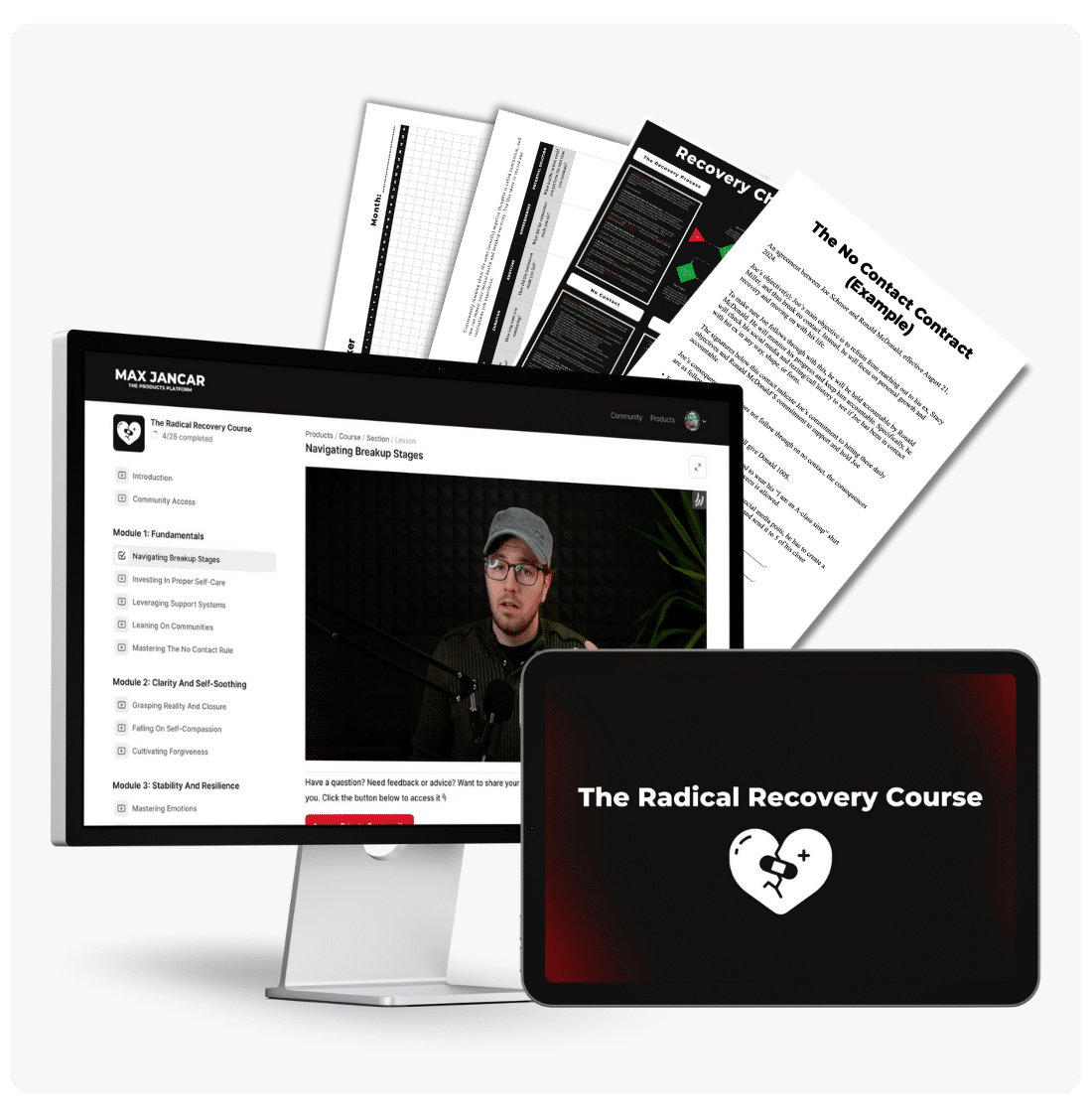Click play to listen to this article.
I encountered my first breakup when I was only 15. As any breakup, it sucked. I was crushed afterward and spent months obsessing over it and feeling depressed.
Luckily, however, I eventually turned to books. I demolished just about every book that promised to make me feel better about myself.
In retrospect, some of them made me want to soak my eyes with bleach. Some were mid and skippable. Others changed my life — or at least improved it in some minor yet meaningful way.
The latter are the books I’ll address in this article: the absolute best books to read after a breakup. Enjoy.
Disclaimer: some of the links on this page are affiliate links. So I will get a commission if you click through and make a purchase with no additional cost to you.
A guide to breakup recovery based on embracing discomfort, extracting wisdom from dark moments, and healing through evidence-based practices.
Order Your Copy1. Getting Past Your Breakup, By Susan J. Elliott
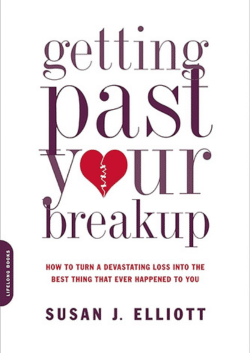
The book focuses on the importance of no contact with an ex, the necessity of grieving and self-care, and developing new, healthy post-breakup habits.
As for Elliott’s approach, it combines direct advice with compassionate support, providing the tough love needed to move past emotional turmoil.
Notable Quote:
Part of moving on is about learning to love yourself, possibly for the first time. If you learn to truly enjoy your own company, you will be far less likely to choose bad relationships just for the sake of being in one.
This cheat sheet lays out 40+ solutions to overcoming a breakup so you can create a new opportunity for love — be that with your ex or someone completely different.
Get The Free Cheat Sheet2. The Subtle Art Of Not Giving A Fuck, By Mark Manson
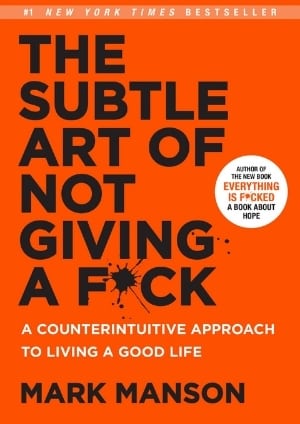
This is, hands down, the ultimate book to read after your breakup. And if you like my work, you’ll love this book.
In brief, it’s about self-improvement, not through avoiding problems or always being happy, but rather through engaging and improving upon problems and learning to accept the occasional unhappiness.
Notable Quote:
You and everyone you know are going to be dead soon. And in the short amount of time between here and there, you have a limited amount of fucks to give. Very few, in fact. And if you go around giving a fuck about everything and everyone without conscious thought or choice — well, then you’re going to get fucked.
3. Everything Is Fucked, By Mark Manson
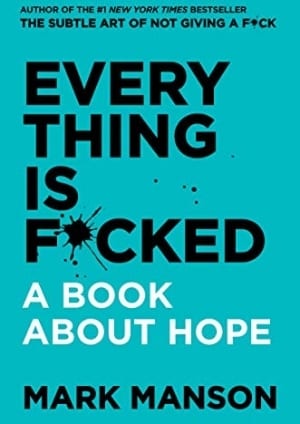
Mark’s second book is similar in theme to The Subtle Art Of Not Giving A Fuck. However, it takes a much more philosophical approach to self-development. It’s a much deeper, less personal, and, in my opinion, a better-written work.
While the Subtle Art questions our conventional wisdom on what makes us happy, Everything Is Fucked questions our assumptions on what makes life worth living.
Fun fact: this book was a massive inspiration for my Radical Recovery Course, specifically the first few lessons on pain, resilience, and acceptance.
Notable Quote:
Because pain is the universal constant of life, the opportunities to grow from that pain are constant in life. All that is required is that we don’t numb it, that we don’t look away. All that is required is that we engage it and find the value and meaning in it.
4. Boundaries, By Henry Cloud
An online course that teaches you how to heal and grow from a breakup so you can create a new possibility for love — with or without your ex.
Get Instant Access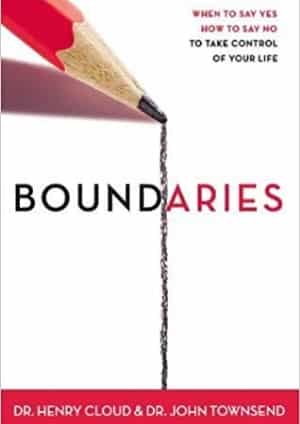
Boundaries helps you set and maintain healthy boundaries. Be that with your ex, partner, friends, or family members.
Overall, it was an easy and accessible read, nothing academic or too technical. I just disliked the countless cases of religious prattle thrown in personally.
I don’t know about you. Maybe you’re into religion and will find this aspect of the work a plus. If so, more power to you! As for me, I just wasn’t a fan.
Notable Quote:
We can’t manipulate people into swallowing our boundaries by sugarcoating them. Boundaries are a “litmus test” for the quality of our relationships. Those people in our lives who can respect our boundaries will love our wills, our opinions, our separateness. Those who can’t respect our boundaries are telling us that they don’t love our nos. They only love our yeses, our compliance. I only like it when you do what I want.
5. Stillness is the Key, By Ryan Holiday
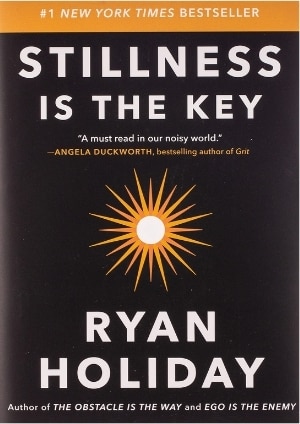
If you’ve read some of my other articles, you’ve probably noticed I borrow many ideas from Ryan Holiday. Journaling, meditation, overcoming pain — I have basically the same takes. So if you enjoyed them, you’ll probably enjoy this book as well.
Notable Quote:
The gift of free will is that in this life we can choose to be good or we can choose to be bad. We can choose what standards to hold ourselves to and what we will regard as important, honorable, and admirable. The choices we make in that regard determine whether we will experience peace or not.
6. The Seven Principles for Making Marriage Work, By John Gottman
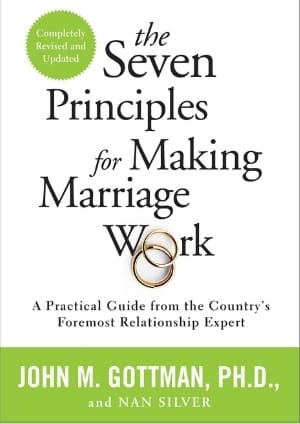
While this book is a bit academic and filled with practical exercises that not everyone is a fan of, it’s still an insightful read — and one of the better books I’ve read after a breakup.
Notable Quote:
Once you understand this, you will be ready to accept one of the most surprising truths about marriage: Most marital arguments cannot be resolved. Couples spend year after year trying to change each other’s mind — but it can’t be done. This is because most of their disagreements are rooted in fundamental differences of lifestyle, personality, or values. By fighting over these differences, all they succeed in doing is wasting their time and harming their marriage.
7. Whole Again, By Jackson MacKenzie
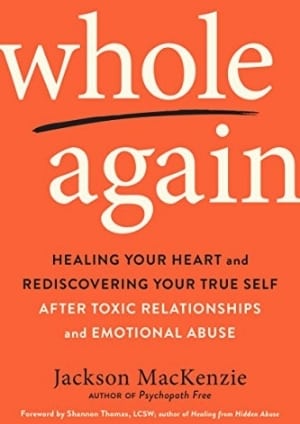
It also contains factual, pragmatic, and verified advice on recovering from a toxic relationship, moving on, and finding yourself again.
If you’re someone who had a relationship that involved lying, cheating, manipulation, gaslighting, love bombing, passive-aggressiveness, or abuse — be that emotional or physical — this is the book for you.
Notable Quote:
As we learn that we’re responsible for our own emotions, we become more comfortable with the idea that others are responsible for their own emotions too. With this mindset, we can finally relax — and begin to heal.
8. Atomic Habits, By James Clear
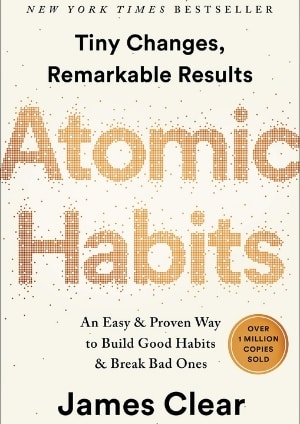
Jam packed with actionable exercises, easily-applicable formulas, and relatable, real-world examples, the book teaches you how to overcome a lack of motivation, be more productive, and develop a more resilient identity — all absolute must-haves post-breakup.
This is especially a wonderful read, if you’ve enjoyed my articles on productivity and habits. Fun fact: probably 50% of what I wrote in them, came from Atomic Habits itself.
Notable Quote:
Every action you take is a vote for the type of person you wish to become. No single instance will transform your beliefs, but as the votes build up, so does the evidence of your new identity.
9. The Gifts of Imperfection, By Brene Brown
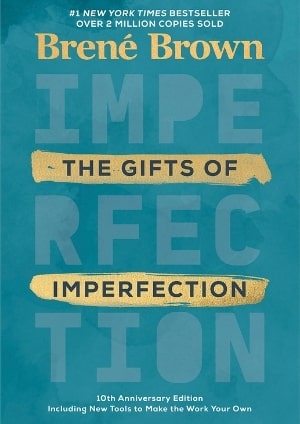
Despite my struggles to relate to certain sections of the book, like the ones on kids and family, it’s still a beautiful, profound, and brilliant piece of writing.
One that just might get you to finally accept your breakup. Perhaps even transform the way you see yourself for the better.
Notable Quote:
Perfectionism is not the same thing as striving to be your best. Perfectionism is the belief that if we live perfect, look perfect, and act perfect, we can minimize or avoid the pain of blame, judgement, and shame. It’s a shield. It’s a twenty-ton shield that we lug around thinking it will protect us when, in fact, it’s the thing that’s really preventing us from flight.
10. Getting the Love You Want, By Harville Hendrix
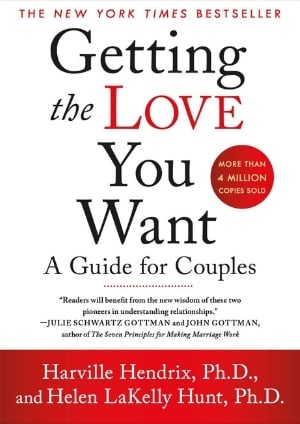
Getting The Love You Want, however, is different. The best kind of different.
Full of well-researched advice and explanations rooted in old-school psychotherapy, the book’s goal is to help you realize why your relationships failed and, based on those insights, how to make your future ones succeed.
Notable Quote:
Helen and I like to think of two people in a conscious love relationship as companion stars. Each person is a unique individual ablaze with potential. One is just as important as the other, and each has a unique and equally valid view of the universe. Yet, together, they form a greater whole, kept connected by the pull of mutual love and respect. They mirror the interconnected universe.
11. Self-Compassion, By Kristin Neff
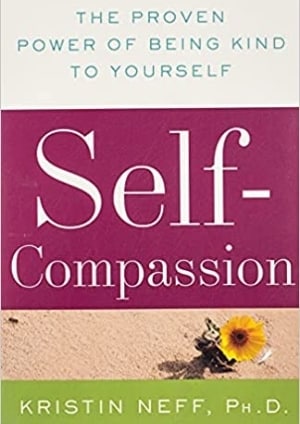
In reality, however, self-compassion has umpteen proven benefits, and is a legit field of psychology. And Neff Kristin is one of the leading researchers in it.
In Self-Compassion, she provides the theory behind the concept, real-life examples of people before/after they started practicing it, and exercises on how to practice self-compassion yourself.
A must-read for anyone who’s beating themselves up post-breakup.
Notable Quote:
Painful feelings are, by their very nature, temporary. They will weaken over time as long as we don’t prolong or amplify them through resistance or avoidance. The only way to eventually free ourselves from debilitating pain, therefore, is to be with it as it is. The only way out is through.
12. The Road Less Travelled, By M.Scott Peck
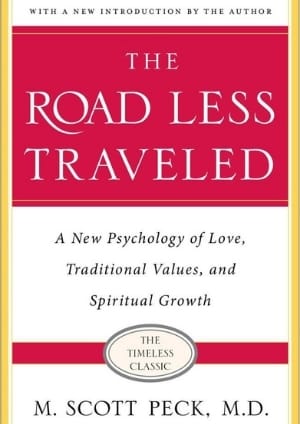
It’s also one of the few self-self books that takes a down-to-earth approach to its themes. One of the best instances of this is actually right at the beginning with its famous opening line, “Life is difficult.”
In The Road Less Traveled, M.Scott Peck explores the nature of love and loving, healthy relationships and what it takes to live a meaningful and happy life. Consider picking it up.
Notable Quote:
Life is difficult. This is a great truth, one of the greatest truths. It is a great truth because once we truly see this truth, we transcend it. Once we truly know that life is difficult-once we truly understand and accept it-then life is no longer difficult. Because once it is accepted, the fact that life is difficult no longer matters.
13. Attached, By Amir Levine
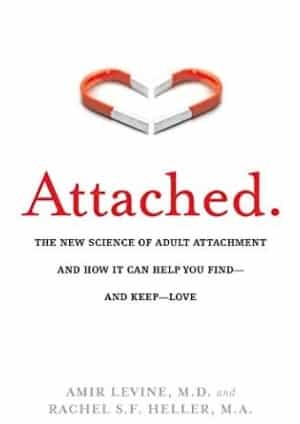
Not only did it help me understand and resolve the needy and obsessive tendencies that kept torpedoing my romantic relationships. It even helped me understand and resolve most of my validation-seeking tendencies and abandonment issues when it comes to my familial relationships.
If you’re also interested in why you’re acting the way you’re acting and how that impacts your romantic relationships, perhaps even familial ones, read this book.
Note: for a summary of the book’s source material, read: Attachment Theory Explained.
Notable Quote:
Instead of thinking how you can change yourself in order to please your partner, as so many relationship books advise, think: Can this person provide what I need in order to be happy?
14. The No Contact Rule, By Natalie Lue
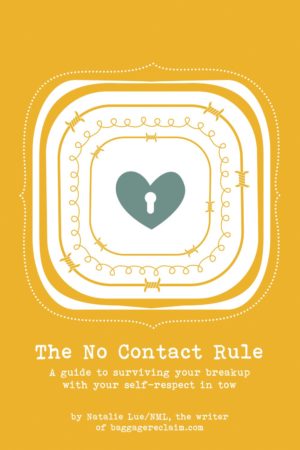
To be more specific, the book provides a) insights into why the rule is crucial for healing post-breakup and breaking unhealthy attachment patterns, b) practical steps for implementing no contact, and c) many ways to maintain it.
Now, I’ll admit: the book has problems. Some parts are stretched out. Certain points repeat themselves. Generally, the book, at times, feels like a collection of blog posts without any fitting transitions connecting them in a way that makes sense. Nevertheless, this is still the best book on no contact I’ve come across.
Notable Quote:
You only have one life to lead — you have better things to do with your time and emotions than remaining tied to someone who does not truly value you.
15. Grit, By Angela Duckworth
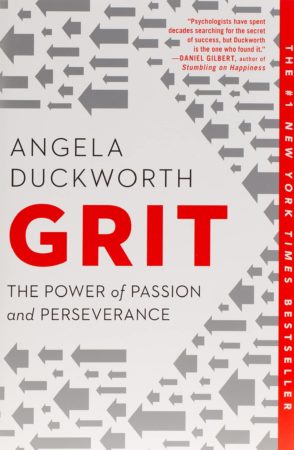
One, she argues that talent and intelligence matter less than grit: her word for perseverance, focus, endurance, and constant improvement. Two, she explores what grit is, where it comes from, how it drives success, and how you can develop it.
In terms of style, the book is akin to Atomic Habits: lots of rags-to-riches stories, real-world examples, and personal stories from the author that most of us will be able to relate to.
Notable Quote:
…there are no shortcuts to excellence. Developing real expertise, figuring out really hard problems, it all takes time — longer than most people imagine….you’ve got to apply those skills and produce goods or services that are valuable to people….Grit is about working on something you care about so much that you’re willing to stay loyal to it…it’s doing what you love, but not just falling in love — staying in love.
16. The Body Keeps the Score, By Bessel Van Der Kolk
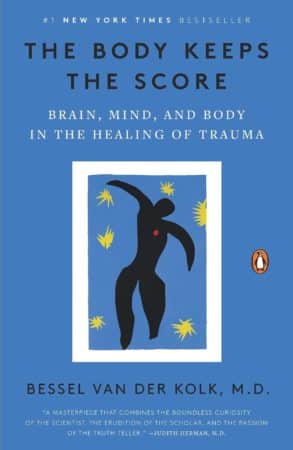
Not only does it unpack the psychology of trauma, how it affects us, and why it’s so difficult to shake off, but it also provides some of the most scientifically valid ways on how to live with it, despite how bad we have it.
Just a heads-up: the book is a bit abstract and technical at times, but nothing a seasoned reader of my blog can’t understand. If you’ve been reading my articles on trauma or resilience, you’ll be just fine with this book.
Notable Quote:
Traumatized people chronically feel unsafe inside their bodies: The past is alive in the form of gnawing interior discomfort. Their bodies are constantly bombarded by visceral warning signs, and, in an attempt to control these processes, they often become expert at ignoring their gut feelings and in numbing awareness of what is played out inside. They learn to hide from their selves.
17. Finding Meaning, By David Kessler
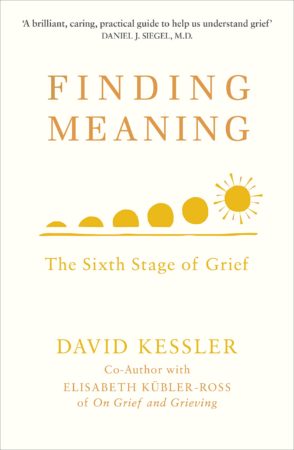
Apart from recapping the previous five stages of grief, and — obviously — going over the sixth stage, this book goes on to explore the entire nature of grief and how it impacts not only us, but society at large.
Overall, the book is far more descriptive than prescriptive. I personally liked this (it reminded me of another great book called Dopamine Nation) but I admit it’s not a genre for everyone. Maybe do some research before you buy it.
Notable Quote:
Each person’s grief is as unique as their fingerprint. But what everyone has in common is that no matter how they grieve, they share a need for their grief to be witnessed. That doesn’t mean needing someone to try to lessen it or reframe it for them. The need is for someone to be fully present to the magnitude of their loss without trying to point out the silver lining.
18. The Six Pillars Of Self-Esteem, By Nathaniel Branden
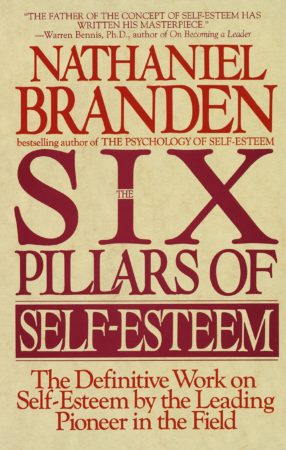
It’s also probably one of the best books to read after a breakup simply because, if you’re like most people, your self-esteem is absolutely fucked right now.
Anyhow, the book’s premise is simple. To develop and maintain high, healthy self-esteem, one must build what the author identifies as the six pillars of self-esteem: living consciously, self-acceptance, responsibility, assertiveness, living purposefully, and personal integrity. The book essentially guides you through the process of establishing these critical elements.
Notable Quote:
Some people stand and move as if they have no right to the space they occupy. They wonder why others often fail to treat them with respect — not realizing that they have signalled others that it is not necessary to treat them with respect.
19. No More Mr.Nice Guy, By Robert A. Glover
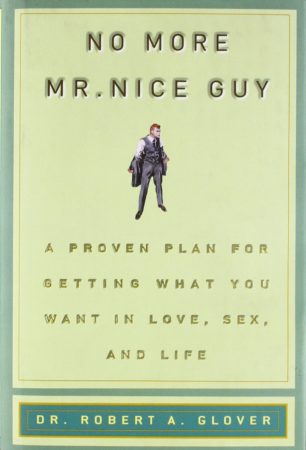
So if you’re needy to a degree — maybe you sacrifice your values too much, maybe you seek an unhealthy amount of validation, or perhaps you have a hard time standing up for yourself — this is the book for you. Don’t pass it up.
Notable Quote:
In general, people are not drawn to perfection in others. People are drawn to shared interests, shared problems, and an individual’s life energy. Humans connect with humans. Hiding one’s humanity and trying to project an image of perfection makes a person vague, slippery, lifeless, and uninteresting.
20. Can’t Hurt Me, By David Goggins
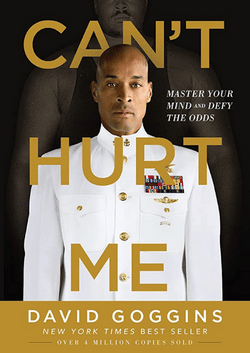
Goggins chronicles his difficult upbringing, including being abused by his father, growing up in poverty, and struggling with obesity.
The book essentially helped many of my readers realize that there are numerous challenges out there, far harsher than a mere breakup. That, and that they don’t really have it that bad in light of this realization.
Notable Quote:
No one is going to come help you. No one’s coming to save you.
21. Stumbling On Happiness, By Daniel Gilbert
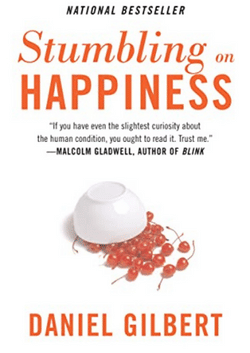
Throughout it, Gilbert uses a mix of humor, scientific research, and relatable examples to explain the complex psychological concept in a surprisingly accessible way.
So if you’re someone who seeks to find happiness post-breakup, you need to pick up this book.
Notable Quote:
Our inability to recall how we really felt is why our wealth of experiences turns out to be poverty of riches.
22. Bittersweet, By Susan Cain
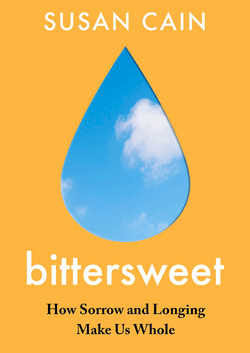
In Bittersweet, Susan explores the value and importance of experiencing difficult emotions such as sadness, grief, and longing.
Drawing on both personal anecdotes and extensive research in psychology and neuroscience, she argues that these emotions play a crucial role in shaping our identities, relationships, and sense of purpose — and that, overall, they’re actually a net positive for us, not something we should run away from.
Notable Quote:
Everything that you love, you will eventually lose. But in the end, love will return in a different form.
23. The Wisdom Of Insecurity, By Alan Watts
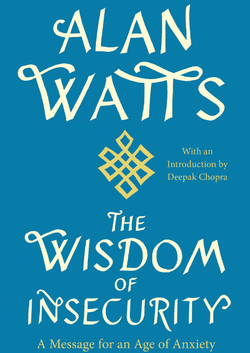
Watts argues that this pursuit is ultimately futile, as no amount of planning or control can ever fully eliminate the risks and uncertainties of life.
Instead, he suggests that we should embrace the impermanence and insecurity of life, recognizing that it is precisely these qualities that make life rich, meaningful, and exciting.
While not everyone’s cup of tea, if you enjoyed my articles on uncertainty, anxiety, and finding a life purpose, you’ll probably enjoy this book too.
Notable Quote:
There is no other reality than present reality, so that, even if one were to live for endless ages, to live for the future would be to miss the point everlastingly.
24. Mindset, By Carol S. Dweck
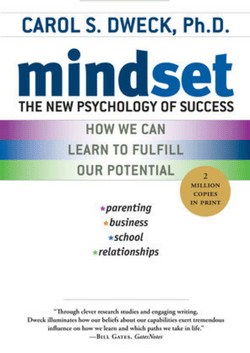
In it, Carol shows how success in school, work, sports, arts, and virtually every area of human endeavor can be dramatically influenced by how we think about our abilities.
The argument made is simple yet powerful: people with a fixed mindset — those who believe that abilities are fixed — are less far likely to flourish than those who adopted a growth mindset — those who believe that abilities can be improved upon.
Notable Quote:
Why waste time proving over and over how great you are, when you could be getting better? Why hide deficiencies instead of overcoming them? Why look for friends or partners who will just shore up your self-esteem instead of ones who will also challenge you to grow? And why seek out the tried and true, instead of experiences that will stretch you? The passion for stretching yourself and sticking to it, even (or especially) when it’s not going well, is the hallmark of the growth mindset. This is the mindset that allows people to thrive during some of the most challenging times in their lives.
25. Eat, Pray, Love, By Elizabeth Gilbert
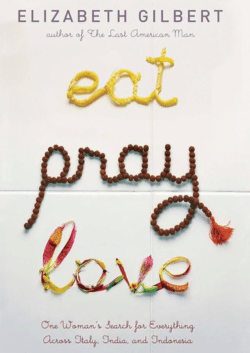
But don’t be fooled: this isn’t your everyday travelogue. While at times surprisingly witty and light, it’s still mostly a raw and deeply personal exploration of what it means to find oneself after loss.
Overall, a truly inspiring work. Let’s just say that I’m not surprised this book is an international bestseller. And one of the most popular non-fiction books of all time.
Notable Quote:
This is a good sign, having a broken heart. It means we have tried for something.
26. Man’s Search for Meaning, By Viktor E. Frankl
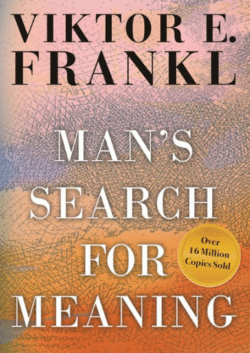
Inside, he discusses how finding a deeper meaning in life helped him survive those harrowing times and how you too can leverage meaning-making to survive just about any adversity (like a breakup).
Notable Quote:
When we are no longer able to change a situation, we are challenged to change ourselves.
27. Feeling Good, By David D. Burns
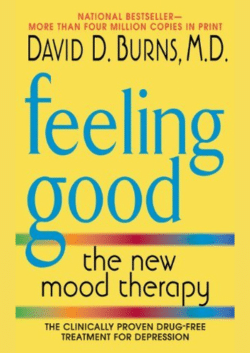
In his book, Burns provides effective tools and strategies to combat depressive thoughts, enhance self-esteem, and improve overall mood without medication.
Therefore, if you’re struggling with any of the above due to your breakup — this is the book for you. Burns has done an amazing job of essentially writing the closest replacement to real therapy.
Notable Quote:
The only way to change your feelings is to change your thoughts.
28. The Happiness Trap, By Russ Harris
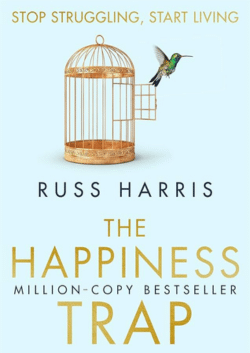
Some of the themes it goes over include, overcoming depression, anxiety, and self-doubt, resolving obsessive thoughts and rumination, and improving confidence and self-esteem.
Looking at the book’s theory through a breakup lens, it essentially shows you how embracing painful post-breakup thoughts and emotions can actually help you feel like yourself again.
Notable Quote:
The more you try to avoid suffering, the more you suffer, because smaller and more insignificant things begin to torture you in proportion to your fear of being hurt.
29. Win Your Breakup, By Natasha Adamo
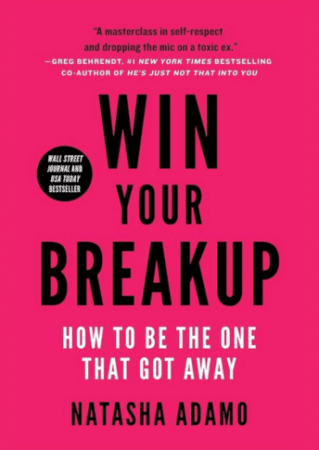
For a breakup recovery book, it actually has some original ideas — which is uncommon. It is also, in my opinion, one of the most practical books in the genre, excluding the workbooks.
But where this book truly shines is in its writing. For a book specifically peddled to women, I thought it would be like all the other women’s breakup books: cheesy, sentimental, and overly politically correct.
Thankfully, I was wrong. This book has a no-bullshit, edgy, and modern style — eerily similar to my work — which is probably why I liked it so much.
So overall, it’s a pretty good book to read after a breakup. Pick it up.
Notable Quote:
Your breakup is not the end of your love story; it’s the beginning of your comeback story.
30. From The Inside Out, By Max Jancar
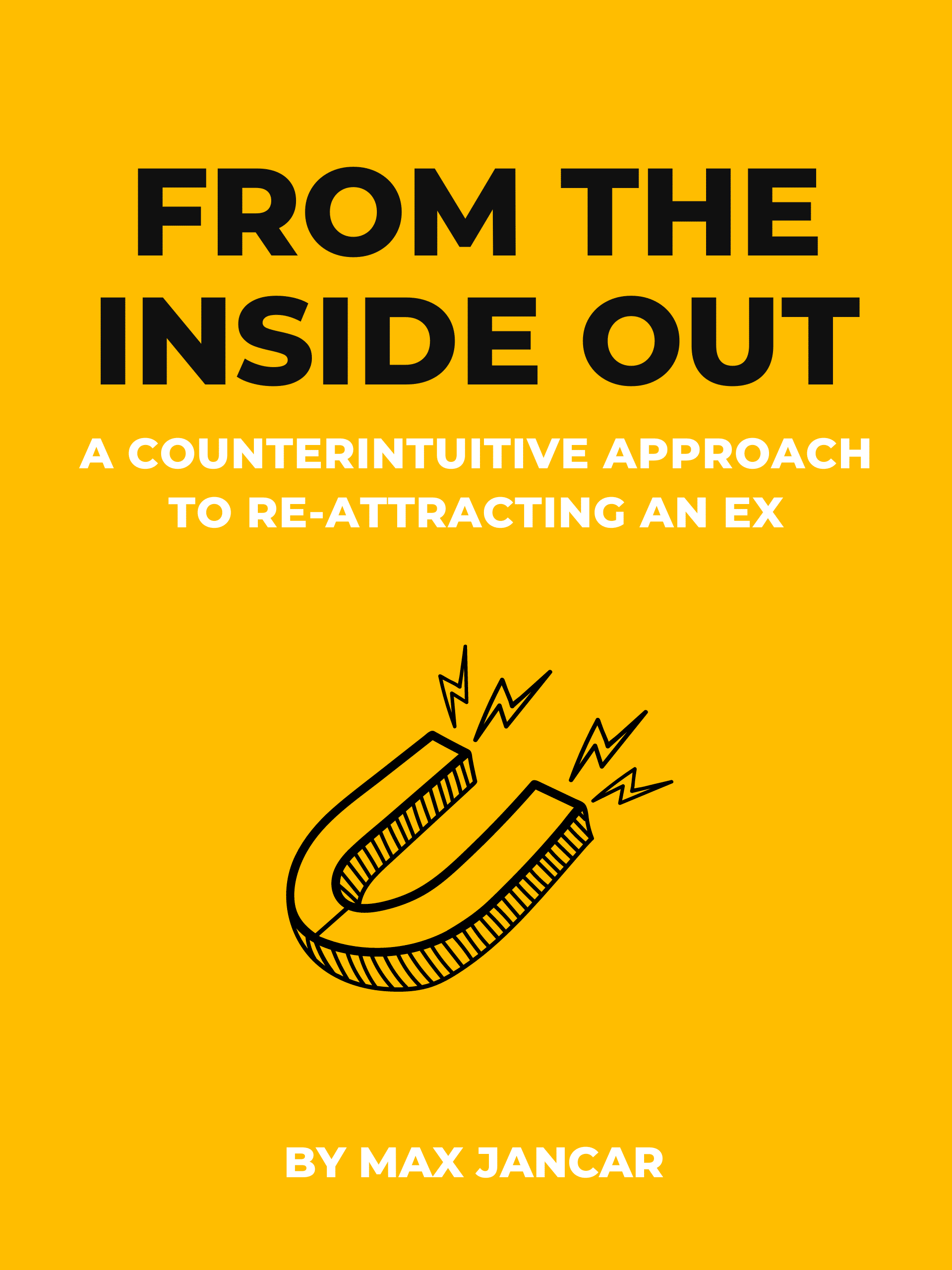
Did I just plug my own book in here? Yes — yes I did. Sure, it’s awkward, but it’s my site. And I wrote a pretty good book. Hell, it’s probably one of the better books to read after a breakup.
At least, that’s what I and most of my readers think. Pick it up and decide for yourself.
Notable Quote:
If you’re looking for a quick and easy way to get back with your ex, please, close this book and grow the fuck up. Re-attraction — that is, the process of rekindling a romantic relationship — hardly ever entails such solutions. Usually, it’s just a fruitless drag through puke, shit, and razor blades. And even more often, it just shouldn’t work out.
This cheat sheet lays out 40+ solutions to overcoming a breakup so you can create a new opportunity for love — be that with your ex or someone completely different.
Get The Free Cheat SheetRelated Reading
- 8 Ways To Overcome Anger After A Breakup October 22, 2021
- 7 Ways To Stop Feeling Lonely After A Breakup March 17, 2020
- Finding Hope After Heartbreak May 26, 2020
- I Dream About My Ex Every Night (Why And How To Stop) November 20, 2021
- How To Get Over Your Ex And Move On For Good February 10, 2023
- Plus Minus Next Journaling March 17, 2023
